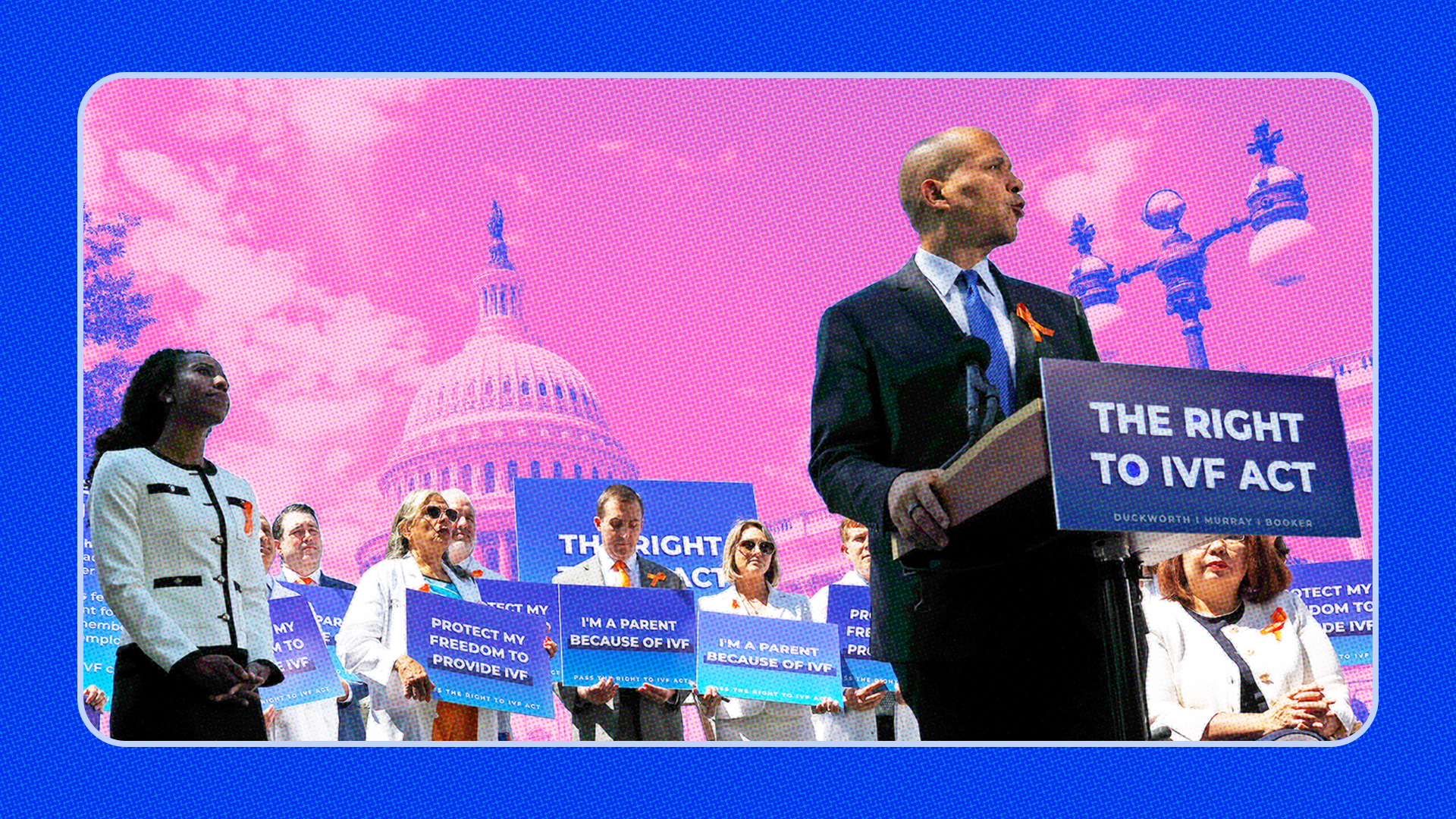On Feb. 21, 2024, the University of Alabama at Birmingham health system announced it was pausing in vitro fertilization (IVF) treatments for all current or prospective patients.
“We are saddened that this will impact our patients’ attempt to have a baby through IVF,” the health system said in a statement at the time. “We must evaluate the potential that our patients and our physicians could be prosecuted criminally or face punitive damages for following the standard of care for IVF treatments.”
Two additional fertility treatment facilities—Alabama Fertility and the Center for Reproductive Medicine at Mobile Infirmary—followed suit, impacting hundreds of patients and an untold number of hopeful families. In 2021 alone, the three providers used IVF and other medical interventions to help achieve more than 400 pregnancies, Reuters reported at the time.
The decision to halt IVF treatments sent shockwaves across the country, further highlighting the undeniable connection between IVF and anti-abortion laws.
Earlier that month, the Alabama Supreme Court ruled that under state law, frozen embryos are children. The ruling paved the way for both fertility centers and patients to be sued for the wrongful death of a minor in the event an embryo or embryos were unused or destroyed.
For some context: over the course of a single IVF cycle, it is common practice and standard procedure for providers to help create multiple embryos in order to increase the chances of a successful pregnancy. Excess embryos are often banked and frozen, allowing couples to return and use those embryos if they choose instead of undergoing additional invasive procedures.
In the 8-1 majority ruling, the Court relied on both the 1872 wrongful death law— when IVF did not exist — and a 2018 amendment to the state’s constitution to rule that it was “a long established precedent that unborn children are children.”
The 1872 Wrongful Death of a Minor Act allows for “parents or legal representatives to sue for monetary damages if a minor child dies due to the wrongful act, omission, or negligence of another person.”
The 2018 amendment, which the court said, “removed any doubt,” declared that the state was “to recognize and support the sanctity of unborn life and the rights of unborn children” as part of its “state abortion policy.” The amendment made Alabama the first state to include a so-called “fetal personhood” clause in its state constitution.
So when the Supreme Court overturned Roe v Wade and eliminated the Constitutional right to access abortion care, Alabama state immediately enacted its Human Lie Protection Act—the state’s anti-abortion trigger law—banning abortion through from the moment of conception and paving the way for the state’s Supreme Court to rule that embryos — either in utero or frozen in a lab — are children.
“When it became pretty clear that the Supreme Court was likely to reverse Roe v Wade, one of the questions that was being talked about and written about…by legal scholars as well as reproductive technology specialists, was if the Supreme Court reverses Roe and allows states to regulate lie from the moment of conception, this could indeed have implications for IVF because IVF create embryos,” Joann Rosen, JD, MA, a practice professor in Health Policy and Management at Johns Hopkins university and an expert in reproductive law, said in an episode of the Public Health On Call podcast shortly after the Alabama Supreme Court ruling.
“In fact, the Supreme Court in Dobbs actually said that states have a legitimate interest in the preservation and protection of human life at all stages of development,” Rosen continued. “So there was speculation as to whether or not there would be litigation around IVF. Could there be attempts to ban IVF because of concerns of how you are treating embryos? Could there be more aggressive attempts to regulate IVF?”
The answer, not just in Alabama but in states across the country that have enacted total or near-total abortion bans, is yes. While Alabama lawmakers on both sides of the political aisle quickly passed legislation that protected IVF providers in the wake of intense bipartisan pushback, an increase in anti-abortion, fetal personhood bills continue to threaten the future of IVF and other similar fertility treatments.
Currently, as a result of the Supreme Court abolishing Roe v Wade, more than a third of U.S. states consider a fetus to be a person at some point during pregnancy. In 2024 alone, at least 14 state legislators have introduced so-called “fetal personhood bills,” NBC News reports, potentially paving the way for additional situations like the one that unfolded in Alabama to occur nationwide.
“What’s happened in Alabama is extreme, but it is not happening in a vacuum,” Elisabeth Smith, director of state policy and advocacy at the Center for Reproductive rights, told the news outlet in a statement. “This is the chaos created by the Dobbs decision.”
In May, Louisiana lawmakers shelved a bill that would have protected IVF access statewide, after the majority could not be convinced to drop a reference to embryos being “biological human beings” from the legislation.
“Fixing the law, the current IVF law, became a lot more complicated than we initially thought,” State Rep. Paula Davis, R-Baton Rouge, said at the time before adding the bill would be re-introduced in 2025.
Lawmakers in Congress have since introduced legislation aimed at protecting access to IVF treatments and other fertility services. Unfortunately, so far those efforts have been unsuccessful—in June, the Senate failed to pass a bill that would have enacted federal protections guaranteeing access to IVF nationwide.
And, as Rosen said in the podcast, the anti-abortion movement seems to “collide with itself,” since abortion ends a pregnancy while IVF creates it. The question remains, will politicians examine that battle and prioritize IVF laws and safety? Only time will tell.






















































